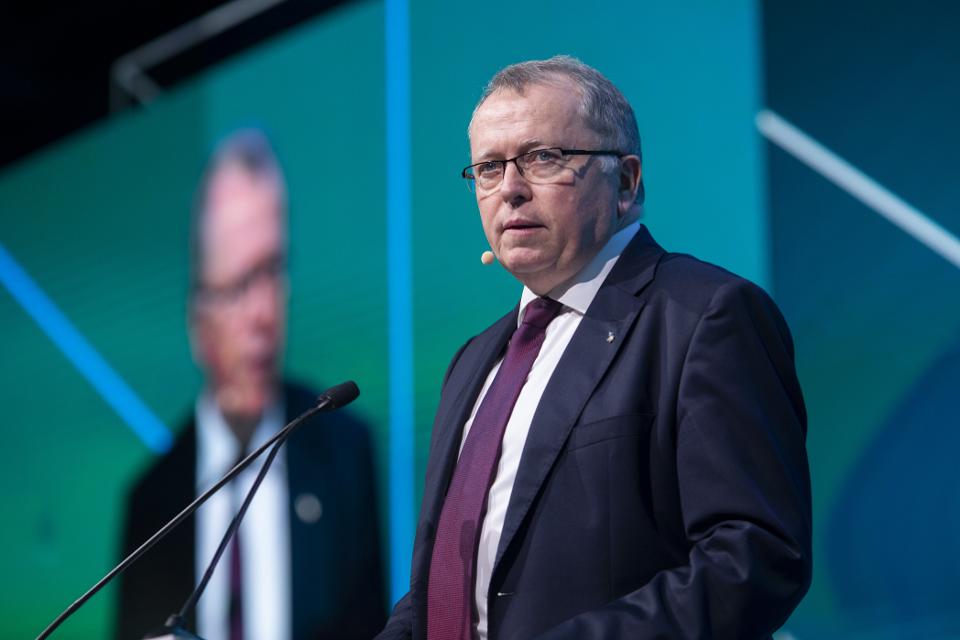Equinor CEO Call for Transparency, Cooperation and Reforms to Address Issues on Climate Change
By Ndubuisi Micheal Obineme
The CEO of Norway’s state-owned oil company, Eldar Sætre, call for Transparency, Cooperation among oil producers and new reforms to tackle climate change, which have been an issue to address in the oil and gas industry.
Eldar who spoke during the 2019 CERAWeek in Houston, Texas, said that the oil and gas industry must act forcefully to ensure transparency, win trust, and tackle climate change.
“Multiple signals and reports tell us that the oil and gas industry can be facing a crisis of confidence. And that lack of trust will increasingly reduce our ability to influence and shape our own future.
“Personally, I consider this to be more than just weak signals. It is in fact a real threat to our license to operate, unless we proactively and collectively address it.
“There used to be a saying in politics, that to succeed, you must understand and respond to the big questions of your time. And now, more than ever, what we need from politicians is exactly that: holistic thinking, and long-term solutions. But what we see, is unfortunately rather the opposite,” Eldar said.
While speaking on the political approach that strives to provide a profound solution on climate change, he said, politics is becoming ever more short-sighted. It is being increasingly dominated by populism, leaving the big questions unanswered.
“For a long-term business like ours, populism and short-term solutions are not an option. Therefore, we must increasingly learn to manage through political cycles, in the same way as we have always managed through commodity cycles.
“Today, I want to share some reflections around how the oil and gas industry actually can respond to some of the big questions of our time. And do it in a way that can sustain trust in our industry also for the long term. Such an approach requires that we act ourselves, and engage constructively with ongoing processes outside the industry that will eventually impact us anyway,” he added.
On the other hand, he explained that an affordable and clean energy including climate change reforms has become a major challenge, which is also mentioned in the UN Sustainable Development Goals. And as the climate and carbon challenges increasingly dominate both the political and public debate, expectations are growing in regards to environmental issues, social engagement and transparency. Which means that these issues should be a top priority for industry players.
To addressing the challenges, he commented: “Action is what’s expected. And action is what’s needed”
“Not taking action is unsustainable, for the planet, for people, and for business. It would represent an increased business risk. For bad regulations. For unstable financial frameworks. And for pendulum swings in political initiatives. And over time, for not attracting the talents and capital we need.
“We are much better off acting ourselves — avoiding that others act upon us. On the positive side, I do see quite a few good initiatives from a growing part of the industry, which is truly inspiring. And OGCI is one of them. But, collectively, we are not doing enough.
“So let’s just imagine what it could mean if we managed to align the entire industry, big and small, behind a set of clear ambitions and actions, while forcefully collaborating and engaging in key ongoing political processes, like the ones driven by the UN.
“The world’s energy system must be transformed in a profound way to drive decarbonization. And by engaging in a respectful dialogue, supported by real action, we can demonstrate that we are committed to accelerate — not slow down — the transition. I’m convinced that these are much-needed elements, in a recipe to restore confidence and secure legitimacy,” he noted.
Highlighting the roles of industry players on climate change, he explained that oil and gas producers can make a significant impact by investing and engaging to fight greenhouse gas emissions.
“Only in this way can we be accepted as a partner in shaping solutions, and not only a source of the problems. And only in this way can we secure a continued licence to solve the dual challenge of the two SDGs.
“By acting forcefully, I believe we can increase trust, and impact the long-term framework for our industry,” he concluded.



